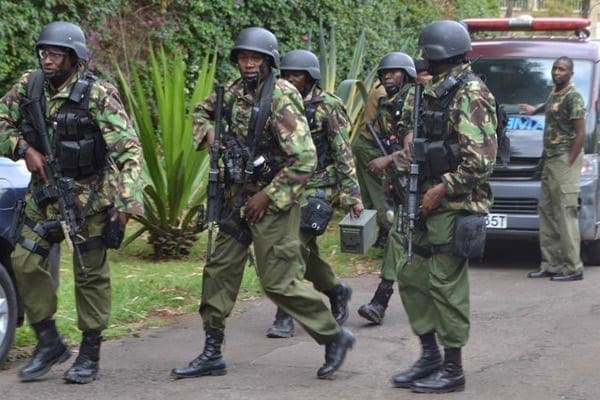
Kenyans prepared to march for greater national security on Tuesday following last week’s massacre by Somalia’s Al-Shabaab Islamists, ahead of a candlelight vigil on the final day of mourning for the 148 people killed by the militants.
Kenyan fighter jets pounded camps belonging to the Al-Qaeda-linked insurgents in southern Somalia on Monday, but anger has been growing over allegations that critical intelligence warnings were missed.
Special forces units took seven hours to reach the university in Garissa last Thursday, some 365 kilometres from Nairobi, as the gunmen stormed dormitories before lining up non-Muslim students for execution in what President Uhuru Kenyatta described as a “barbaric medieval slaughter”.
The massacre, Kenya’s deadliest attack since the 1998 bombing of the US embassy in Nairobi, claimed the lives of 142 students, three police officers and three soldiers.
AIR STRIKES
Tuesday’s demonstration was due to begin at 10am in Nairobi as security forces continued their hunt for those behind the university killings, with the vigil planned for later in the afternoon on the third and final day of national mourning.
The army said Monday’s airstrikes destroyed two Islamist bases, and followed a promise by Kenyatta that he would retaliate “in the severest way possible” against Al-Shabaab militants for their attack last Thursday.
“We bombed two Shebab camps in the Gedo region,” Kenyan army spokesman David Obonyo told AFP, without giving details about any possible casualties in the lawless Somali area bordering Kenya.
Kenyan airplanes have made repeated strikes in southern Somalia since sending troops into their war-torn neighbour in 2011 to attack Shebab bases, with Nairobi later joining the African Union force fighting the Islamists.
ANOTHER BLOODBATH
“The bombings are part of the continued process and engagement against Al-Shabaab, which will go on,” Obonyo added.
Al-Shabaab fled their power base in Somalia’s capital Mogadishu in 2011, and continue to battle the AU force, Amisom, sent to drive them out. It includes troops from Burundi, Djibouti, Ethiopia, Kenya and Uganda.
The militants have carried out a string of revenge attacks in neighbouring countries, notably Kenya and Uganda, in response to their participation in the AU force.
On Saturday, Al-Shabaab warned of “another bloodbath” unless Kenya withdraws its troops from Somalia, and threatened a “long, gruesome war”.
Al-Shabaab fighters also carried out the Westgate shopping mall attack in Nairobi in September 2013, a four-day siege which left at least 67 people dead.
FIVE ARRESTED
Five men have been arrested in connection with the university attack, including three alleged “coordinators” captured as they fled towards Somalia, and two others seized in the university compound.
The two arrested on campus included a security guard and a Tanzanian found “hiding in the ceiling” and holding grenades, the interior ministry said.
A $215,000 bounty has also been offered for alleged Al-Shabaab commander Mohamed Mohamud, a former Kenyan teacher said to be the mastermind behind the attack and believed to now be in Somalia.
Authorities on Sunday named one of the four gunmen killed as a fellow Kenyan, highlighting Al-Shabaab’s ability to recruit within the country.
Interior ministry spokesman Mwenda Njoka said high-flying Abdirahim Abdullahi, an ethnic Somali, was a university law graduate described by those who knew him as an A-grade student and “a brilliant upcoming lawyer”.
ABATTOIR-LIKE STENCH
The spokesman said Abdullahi’s father, a local official in the northeastern county of Mandera, had “reported to the authorities that his son had gone missing and suspected the boy had gone to Somalia”.
Forensic investigators aided by foreign experts have continued to scour the site, where an AFP reporter on Monday was among the first journalists to enter since the attack, describing bullet-scarred buildings, blood stains on the floors, and an abattoir-like stench across the campus.
Scores of family members of those killed continue an agonising wait for the remains of their loved ones at the main mortuary in Nairobi.
Although Kenyatta has vowed to retaliate for the massacre, there have also been calls for national unity.
In an address to the nation on Saturday, Kenyatta said people’s “justified anger” should not lead to “the victimisation of anyone” — a clear reference to Kenya’s large Muslim and Somali minorities in a country where 80 percent of the population is Christian.
-nation.co.ke







